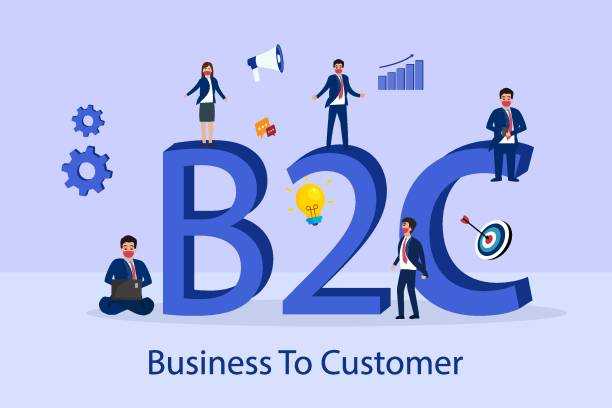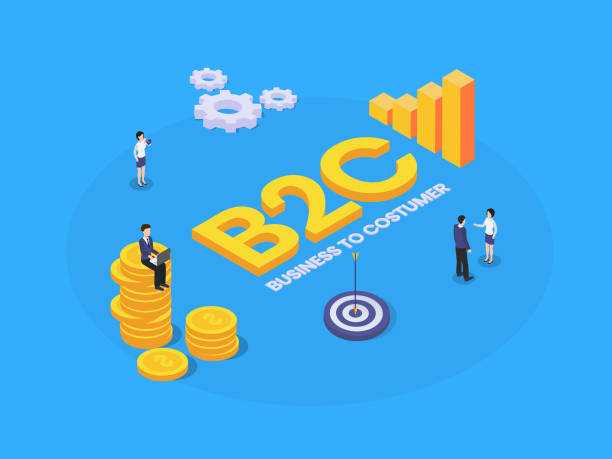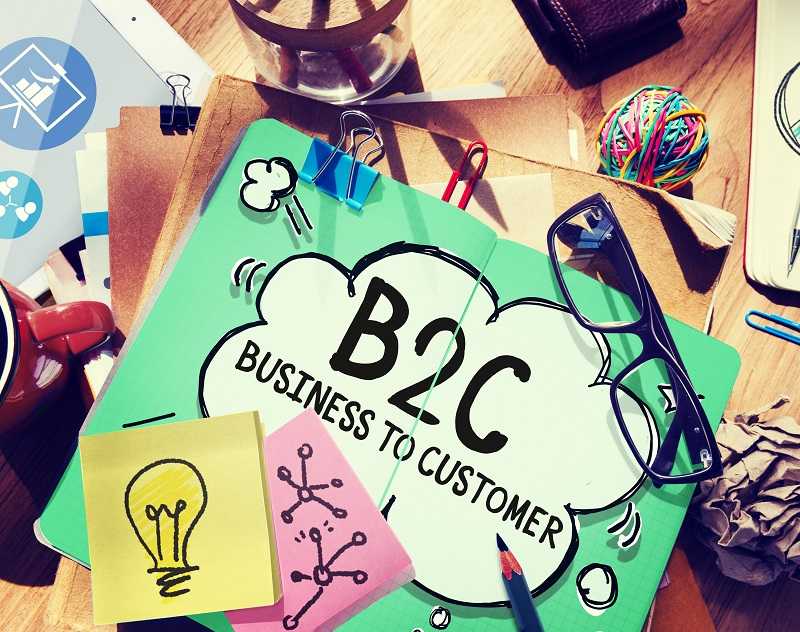What Is The Meaning Of B2C

Business to Consumer, B2C companies were instrumental in the commercial Internet's rapid growth in the 1990s.
Consumers received large sums of venture capital in the form of free online services and discounted shopping, resulting in widespread adoption of the new medium.
The B2C companies, on the other hand, were among the first to fall when the capital markets turned sour, and they fell hard. Many businesses attempted to follow the herd of investors by converting from B2C to B2B.

What does B2C mean in business?
B2C (business-to-consumer) is a retail model in which goods or services are sold directly to the end-user who has purchased them for personal use.
It is frequently contrasted with the B2B (business-to-business) model, which involves businesses exchanging goods and services rather than consumers.
B2C refers to any business transaction in which the consumer receives goods or services directly from the seller, such as retail stores, restaurants, and doctor's offices.
Types of B2C
It usually refers to e-commerce businesses that connect their products with customers via online platforms.
There are five different types of businesses that we refer to as B2C:
1. Sellers who sell directly to customers
This is most likely the scenario you're most familiar with. When we talk about direct sellers, we're referring to an online store where customers can buy products.
It doesn't matter if you're dealing with large corporations like Apple that create and sell products, or department stores like Debenhams, Target, and Fenwick that sell products from a variety of brands.

2. Intermediaries on the Internet
Online intermediaries act as a sort of "middle man," bringing buyers and sellers together. They do not, however, own the products or services themselves.
3. Advertisement-driven
This business model appears to be more complicated, but it is actually quite simple. The advertising-based business model refers to companies that sell online advertisements using high volumes of web traffic.
These ads then sell products or services to visitors, which falls under the category of affiliate marketing in some cases.
In general, this model only works for brands that are willing to give away high-quality content for free. This encourages people to access whatever you've published from all over the internet. Then they'll interact with the ads while exploring your digital platform.
4. Participation in the community
As the name implies, community-based models make use of online communities of people who share a common interest.
Marketers can use these resources to directly market their products and services to their target audience.
5. Fee-For-Service
Customers must pay a subscription to access the content that these websites have published. In general, fee-based platforms provide a free sample of their content.
This allows users to determine whether they require the products or services offered by the company; Netflix is an excellent example.

Characteristics of B2C Marketing
B2C marketing can be defined by a set of distinguishing characteristics. Take a look at the list below.
The sales cycle is short.
Unlike B2B marketing, where the sales cycle is much longer, B2C customers do not spend hours researching, debating, and comparing every feature.
Customers who buy B2C products are usually referred by friends, making the process less intimidating for both buyers and sellers.
Dominance of an emotional component over a rational component
Customers in the B2C sector seek immediate solutions to their problems based on their desires. They rarely consider the purchase from a strategic standpoint.
They simply want a quick fix that will meet their immediate requirements. As a result, if a brand is able to provide them with this solution, they will undoubtedly return for a similar emotional experience.
Collaboration with the end-user
B2C businesses deal directly with the people who buy their products. This makes persuasion, finding the right words, and employing special techniques easier.
A salesperson in B2B must negotiate with a number of influential people who make decisions on behalf of the entire company.

Challenges in B2C commerce
In B2C e-commerce, there is far more competition and customer demand than in the business-to-business model. Taking a closer look at the factors that contribute to the success of a B2C store, we can identify the following:
Challenge #1: Consumer traffic is important
You don't exist if Google, Bing, or Yahoo! don't know your name. Any online business's lifeblood is search engine marketing and optimization. Transitioning to a link on the first or second page of search results is typical consumer behavior.
A B2C website must be optimized for traffic from the beginning; the structure, architecture, and content management system must all work for you. As a result, the platform you choose for your website is critical to its success.
Challenge #2: Processing of payments
Due to security concerns, many customers are hesitant to provide personal information to websites. SSL encryption, PCI compliance, and other trust marks have all been shown to boost online clients' trust.
Challenge #3: Client assistance is available
It's always about the people in sales. The cost of acquiring a new customer is nearly ten times greater than the cost of keeping an existing loyal customer, who typically spends 60% more than a new customer.
Visitors who have a positive customer experience are more likely to become repeat customers.

As a result, the most important focus should be on increasing retention. There are numerous strategies that can be used to make clients feel appreciated.
Online shopping should be simple, and it should encourage customers to become partners and brand advocates.
These strategies can be bolstered by powerful, simple-to-use tools that aid in the delivery of engaging promotions, campaigns, and loyalty programs.
Author Bio
The Editorial staff includes content researchers from various areas of knowledge. They add a plethora of expertise to the Hubslides Editorial team. They constantly and frequently oversee, produce and evaluate contents that are most ideal to aid impacting knowledge to readers.
Article Comments
No Comments!
At present there are zero comments on this article.
Why not be the first to make a comment?
Similar Articles
Sponsor
Search Articles
Experts Column
Latest Articles
Featured Articles
Most Popular Articles












